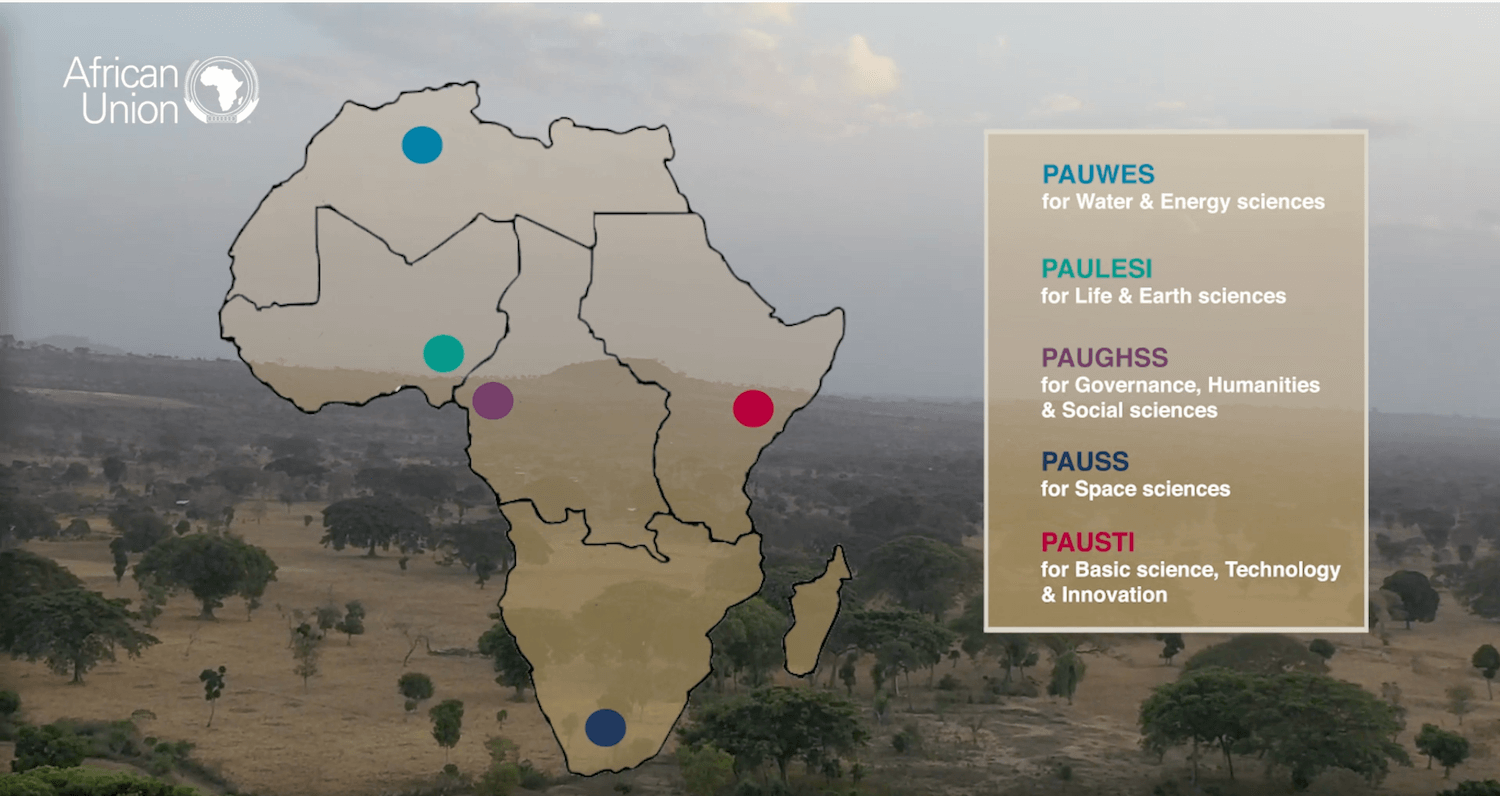The Pan African University (PAU) is the culmination of continental initiatives of the Commission of the African Union to revitalize higher education and research in Africa, under the Second Decade of Education for Africa and the consolidated Plan of Action of Science and Technology for Africa. It will exemplify excellence, enhance the attractiveness and global competitiveness of African higher education and research and establish the African University at the core of Africa’s development.
The PAU will greatly boost the population and retention of high-level human resources and quality knowledge outputs and be able to attract the best intellectual capacity from all over the world. Africa acknowledges the fact that social and economic development is not possible without substantive investment in higher education and research. The PAU was launched as the African Union (AU) undertook the evaluation of the Second Decade of Education for Africa. The PAU Rectorate is based in Yaoundé, Cameroon
The African Union Commission identified critical themes within the five institutes of the Pan African University, as key to the development of Africa and attainment of the vision of the African Union. These are hosted in the different PAU Institutes as follows:
1. Water and Energy Sciences (including Climate Change) (PAUWES, Algeria)
Programmes offered
- Water (Engineering option)
- Water (Policy option)
- Energy (Engineering option)
- Energy (Policy option)
2. Basic Science, Technology and Innovation (PAUSTI, Kenya)
Programmes offered
- Civil Engineering (Arid and Semi-Arid Land option)
- Civil Engineering (Structural option)
- Civil Engineering (Structural option)
- Electrical Engineering) (Power Systems option)
- Electrical Engineering (Telecommunications option)
- Mathematics (Computational option)
- Mathematics (Financial option)
- Mathematics (Statistics option)
- Molecular Biology & Biotechnology
- PhD Civil Engineering (Arid and Semi-Arid Land option)
- PhD Civil Engineering (Structural option)
- PhD Electrical Engineering) (Power Systems option)
- PhD Electrical Engineering (Telecommunications option)
- PhD Mathematics (Computational option)
- PhD Mathematics (Financial option)
- PhD Mathematics (Statistics option)
- PhD Molecular Biology & Biotechnology
3. Life and Earth Sciences (including Health and Agriculture) (PAULESI, Nigeria);
Programmes offered
- Environmental Management
- Geosciences (Mineral Exploration option)
- Geosciences (Petroleum Geosciences option)
- Health Sciences (Reproductive Biology option)
- Health Sciences (Reproductive Health option)
- Plant Breeding
- PhD Environmental Management
- PhD Geosciences (Mineral Exploration option)
- PhD Geosciences (Petroleum Geosciences option)
- PhD Health Sciences (Reproductive Biology option)
- PhD Health Sciences (Reproductive Health option)
- PhD Plant Breeding
4. Governance, Humanities and Social Sciences (PAUGHSS, Cameroon);
Programmes offered :
- MA Conference Interpreting
- MA Governance and Regional Integration
- MA Trans Border Languages (Kiswahili option)
- MA Translation
- PhD Governance and Regional Integration
5. Space Sciences (PAUSS, South Africa).
Funding
The PAU is financed through the following sources:
- Settlement of an Endowment Fund
- Budgetary resources provided by AUC , Host Countries and Key Thematic Partners:
AUC : Scholarships for students, mobility and honorarium for Teaching Staff
• Host Country: Infrastructure and Running Costs. The country can mobilize this contribution through a Partner
• Lead Thematic Partner: Support for Equipment, Academic Costs and Research - Self-generated income through teaching and research by Institutes and Centers
PAU Scholarship Grants:
PAU offers full scholarships to all students enrolled into its programmes following a competitive admissions process. Calls for scholarship applications are issued and widely disseminated by the Rectorate and students apply online. PAU Institutes establish juries of local, regional and international experts to select students and Institute Boards submit the final list of selected students to the Rectorate. The PAU Senate makes final recommendations on student admission to the PAU Council. Before enrolment, each student signs a scholarship agreement specifying the conditions of the offer and the duties and responsibilities of both parties.
In the scholarship agreement, PAU Students are required to make an undertaking to serve any African Union Member State for a period equal to at least the duration of the scholarship after the successful completion of their studies. Students are obliged not to engage in any income generating activities that will interfere with their academic programmes. Student engagement in income generating activities shall be approved by the PAU Rectorate, only if such activities will not interfere with the student’s academic programme.
The scholarship grant covers the following costs:
The scholarship grant covers the following costs:
- Tuition fees, paid directly to the relevant PAU institute.
- A stipend of $750 per month for Masters, and $1,100 for PhD students, to support the student’s living costs including food, housing, utilities, local transportation and medical insurance.
- Students not permanently resident in the country hosting the institute they are attending are entitled to a single, economy return air ticket for the most direct route between their country/city of permanent residence and the host country/city
- Students permanently resident in the country hosting the institute they are attending are entitled to $100 to cover the cost of their travel
- The PAU Rectorate reserves the right to terminate or suspend the grant if there is compelling evidence that the student has not complied with any of the provisions of the scholarship agreement



